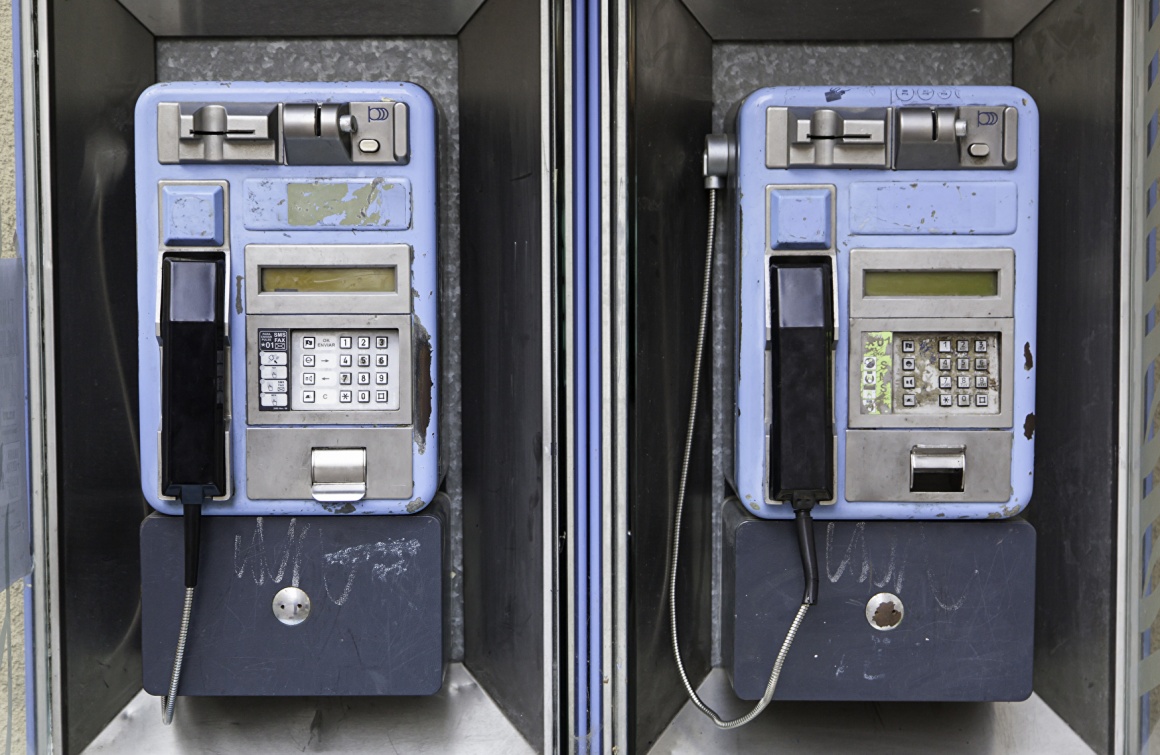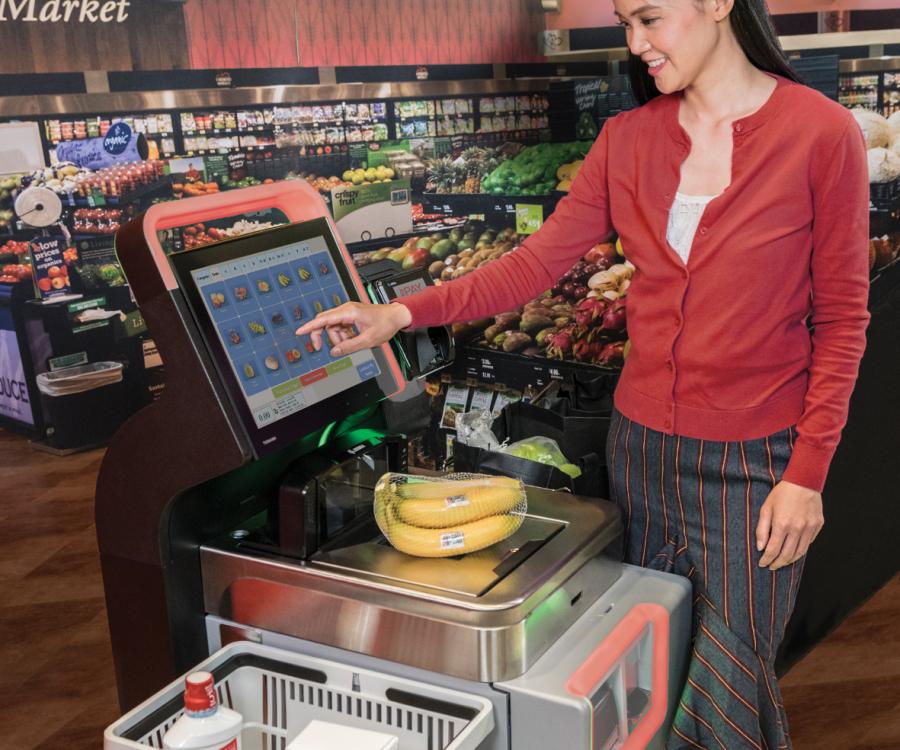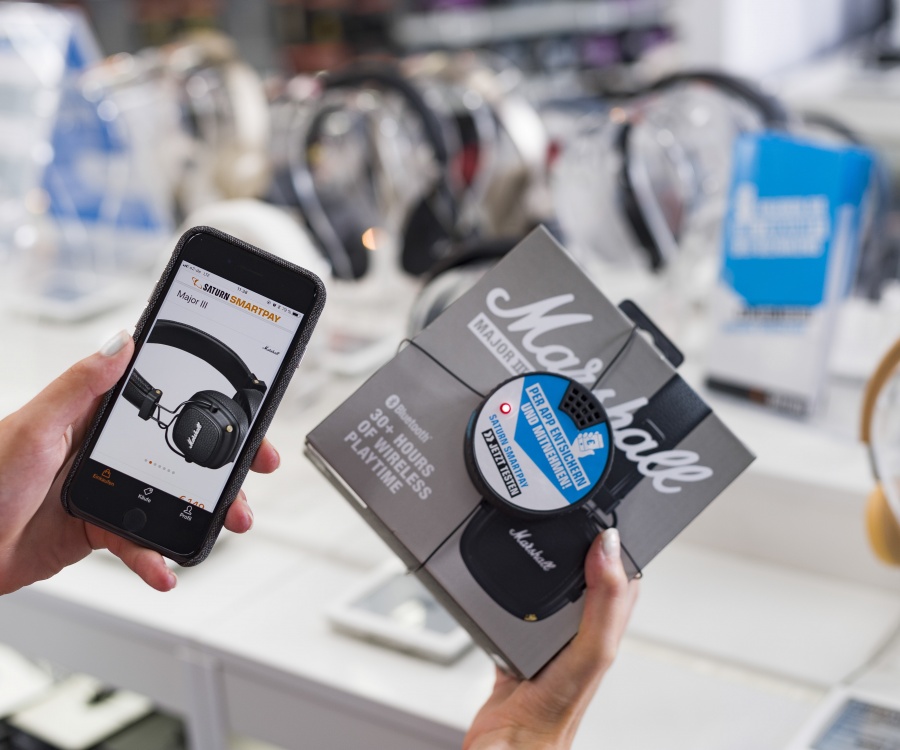
With mobile payment, EuroCIS, The Leading Trade Fair for Retail Technology, taking place from 19. To 21. February 2019 in Düsseldorf, will cover a topic experts say will revolutionise retail in coming years. In the wake of the introduction of the contactless debit card in summer 2017 card-based payment processes have noticeably changed in many retail operations. Contactless payment options have already been available since 2007 (launch of the contactless Visa card in the UK) but the NFC-standard based contactless payment has not gained any major ground in Germany.
With a 6.5 percent share of credit cards in terms of turnover and 0.9 percent of debit cards issued by credit card organisations the opportunities for nationwide adoption by retailers and consumers were too limited. Add to this, that not even all credit cards are NFC-enabled.
Fundamental change since just over a year
At present, two thirds of all cards issued by savings banks and cooperative banks feature an NFC chip. The complete coverage of cards for these, the two biggest groups in the credit business, is foreseeable. The utilisation rates of contactless payment – which is now technically feasible for nearly all retailers and also in practical use by 78 percent of the major retail companies – are rising month on month. Some 15 percent of all debit card payments are expected to be contactless today. This means, to the tune of 400 million payment processes in German retail can be expected to be contactless transactions in 2018. The strength of the debit card as the central and key interface with checking accounts has again proven its worth.
There is still an authentication threshold of 25 euro in place, but a sizeable portion of these contactless payments is also handled without any physical contact with the payment-processing terminal above this limit. This convenient, quick and hardware-saving payment mode has also swiftly been adapted by check-out staff. More often than not, cashiers take over the “tapping” job – even with significantly higher purchase amounts. Shoppers only enter their PIN codes depending on the amount or get their cards back right away with lower amounts.
The big success of card-based, contactless payments that is on the horizon is now encouraging suppliers to focus their developments on the next logical technology: mobile payments. Here a distinction must be made between Wallet solutions and solutions with a direct link to the holder’s account.
After the pioneers “Netto App” and “Payback Pay”, the Wirecard solution “boon”, the “bluecode” solution originally hailing from Austria, as well as Google Pay since summer 2018, the “Sparkassen App” and the VR App of the cooperative banks have all gone “live”. In addition, Apple Pay has announced its intention to enter the not so easy German payments market for 2018. Furthermore, more and more stores with Chinese shoppers also offer Alipay and WeChat Pay – highly popular mobile payment solutions in China. These options, however, so far presuppose a shopper’s account in China.
The multitude of new payment Apps and the use of new technologies such as NFC or QR code scanners make higher demands on check-out staff in retail. Gone are the days where shoppers only had a choice between cash, debit card and maybe a credit card. Just as unclear to most retail managers are the precise processes running in the background, let alone the question of finding the correct partner to negotiate the transaction fees with and the optimum technology.
EHI Mobile Payment Initiative
To do away with this deficit the EHI Mobile Payment Initiative was established in September 2018.
The founding members behind many payment Apps with Wallet solutions are such international schemes as MasterCard and Visa, the payment App suppliers bluecode, Payback Pay, Google Pay and Wirecard, but also the holistic self-check-out App by Roqqio (höltl, Futura, e-fulfillment) called Buybye solution. Also represented are GS1 Germany, Ingenico Payment Services as a payment service provider and CGI Deutschland and, last but not least, the “girocard” debit card system for the German credit business with its current solutions Sparkassen App and VR App.
The task is to:
- Provide comprehensive and transparent information on mobile payments in Germany.
- Create a basic understanding of this innovative technology among consumers and retailers.
- Increase both consumers’ and retailers’ knowledge about the various processes and systems available.
- Enable retailers to implement an optimal range of mobile payment solutions at any time.
- Promote exchange and dialogue among the partners of the initiative on mobile payment.
A multi-stage, representative survey among consumers on the topic of mobile payment has already been concluded. It shows that some 20 million customers here are open to mobile payments. There is still some reticence about data protection and data security among sceptics. Here the EHI Mobile Payment Initiative also wishes to increase transparency. It also became clear during the survey that shoppers would prefer to use mobile payment without a specified maximum limit. This finding is also confirmed by practical experiences gained with contactless payment. This means that mobile payment is not only attractive for kiosks, gastronomy, drug stores and food retail but also for the entire textile retail or DIY store segment with substantially higher average spends.
At the same time, EHI subsidiary GS1 Germany is busy making SEPA Instant Payments an online and mobile option for paying at retail check-outs. Here the first pilot applications can be expected in the near future. The advantage of real-time transactions for retail is in the unlimited safeguarding against payment default – the way we only know from cash transactions – and in a perceivable increase in liquidity. The drivers in retail here are the Otto Group and Rewe.
It remains to be seen whether mobile payment in Germany will ever rank as high as in China, where already over half of the transactions are handled with Alipay or WeChat Pay, according to statistics of the Deutsche Bundesbank. Retail should be prepared though to give shoppers all desired options. The demand for it will already rise noticeably in the very near future. EuroCIS 2019 offers the ideal platform to learn everything there is to know about market-relevant solutions.









